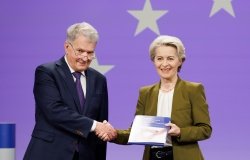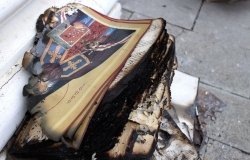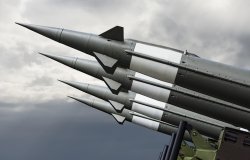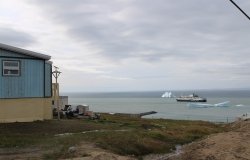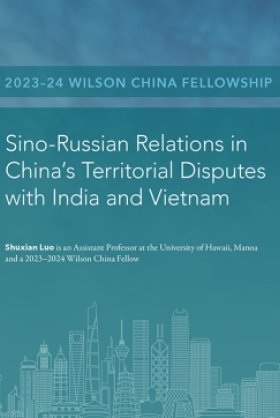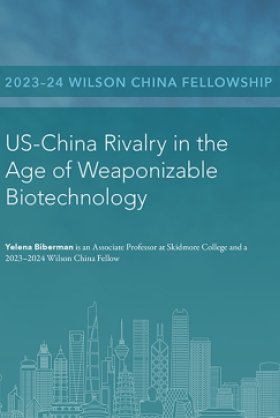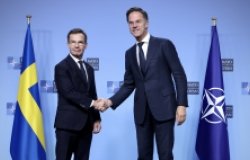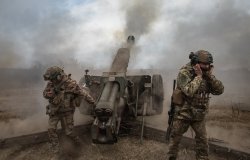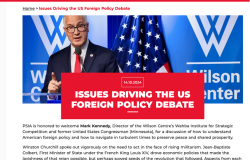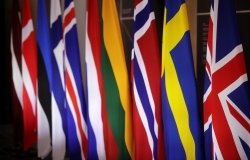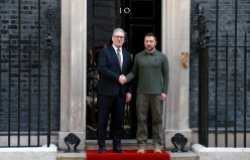Dana.S / Shutterstock.com
The Muslim World after 9/11
with Angel Rabasa, Senior Policy Analyst, RAND Corporation
Overview
This meeting, jointly sponsored by the Woodrow Wilson Center's Division of International Security Studies and Middle East Program, the RAND Corporation and the U.S. Army's Eisenhower National Security Series, was part of an ongoing series on terrorism and homeland security.
Angel Rabasa's presentation focused on the findings of a broad-ranging RAND Corporation study whose objectives were: to develop a typology of tendencies in the Muslim world; to identify key cleavages and fault lines; to identify the factors that produce extremism and violence; to analyze the effects of 9/11, the "global war on terrorism" (GWOT), and the Iraq war; and to develop recommendations for U.S. Strategy.
Rabasa identified seven major tendencies in the Muslim world—ranging from fundamentalists and traditionalists to modernists and secularists—on the basis of key "marker issues" (ideology and views of government, propensity for violence, and links to terrorism, among others).
According to Rabasa's analysis of this spectrum of Muslim tendencies, the radical fundamentalists are less democratic and more prone to violence than those with a modernist or secularist orientation. He also underscored the heterogeneity of the Muslim world: the Arab states account for only 20 percent of world Muslims and the state with the largest Muslim population is Indonesia.
Rabasa described the sources of Islamic radicalism under three categories. First are the underlying conditions of failed political and economic models, structural anti-Westernism, and unresolved issues of state and religious authority. The second category is processes, such as the general Islamic resurgence, Saudi Arabia's external funding of religious fundamentalism and extremism, and the emergence of the mass media in the Muslim world. Third, and finally, are key catalytic events—the 1967 Six-Day War, the Iranian revolution, the Afghan war, 9/11, and the Iraq war.
The Iraq war has been a catalytic event in the Middle East on the order of the 1967 war or higher. For the first time since the colonial era, a Western-led coalition assumed responsibility for restructuring the political system of a Muslim country.
In this transformed political context, Rabasa argued that the centerpiece of an effective U.S. strategy in the Muslim world should be to empower moderates. This would entail creating moderate Muslim networks as well as supporting "civil Islam" organizations (which he defined as civil society groups supportive of democratization and modernity). In tandem with empowering the moderates, the United States and its allies need to disrupt radical networks and deny resources to extremists. The key analytical and intelligence challenge is identifying these hostile networks.
Rabasa stated that attempts by non-Muslims to influence Muslims are likely to backfire: the United States should rely on Muslim scholars to delegitimize radical ideology. Careful engagement of Muslim Diasporas could help the United States advance its interests in the Muslim world. Expanded economic opportunity will not by itself prevent extremists from striking at the perceived enemies of Islam, but might undercut the appeal of radicals. International assistance can play a critical role and should be channeled toward programs run by secular or moderate Muslim organizations.
Turning finally to the ongoing insurgency in Iraq, Rabasa observed the United States faces a dilemma: It cannot leave without defeating the insurgency or leaving a power vacuum behind, but it needs to reduce its visibility as an "occupying power."
Robert S. Litwak, Director, Division of International Security Studies
Hosted By

Middle East Program
The Wilson Center’s Middle East Program serves as a crucial resource for the policymaking community and beyond, providing analyses and research that helps inform US foreign policymaking, stimulates public debate, and expands knowledge about issues in the wider Middle East and North Africa (MENA) region. Read more
Thank you for your interest in this event. Please send any feedback or questions to our Events staff.


